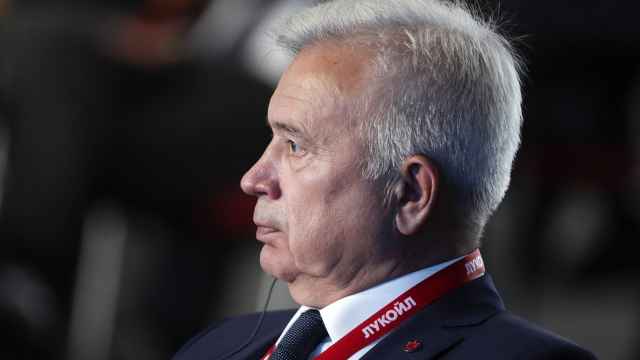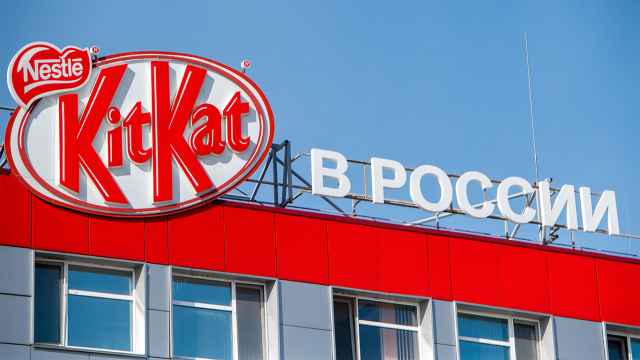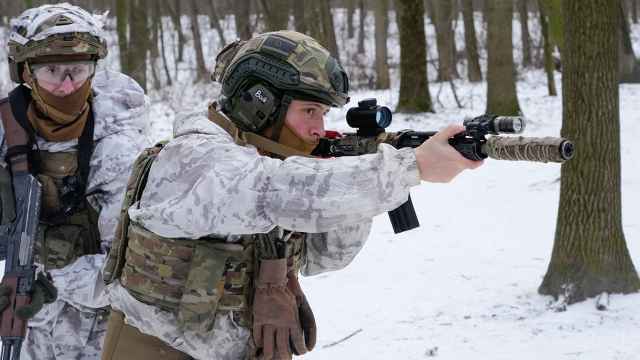Nine months after Russia’s invasion of Ukraine, the Russian economy is doing better than expected. The predicted collapse has been avoided, and the forecasted 8-10% fall in GDP for the year has been reduced to a 3-4% drop.
Still, before the war, 3% growth was predicted. Recovery is only expected to begin in 2024 at best, and only in the unlikely event that external factors do not significantly worsen. Russia looks set to see yet another lost decade, with a decade of stagnation followed by a decade of regression.
The Russian government and the central bank have softened the economic blow from the war against Ukraine and the sanctions that followed it, not least through the conservative fiscal policies of recent years, such as consistently balancing the budget with an oil price of $45 per barrel and keeping expenditure on a tight leash, even at the cost of economic growth.
In addition, preparations had been made for sanctions. State companies and major banks carried out stress tests, including scenarios in which Russia was disconnected from SWIFT, the West stopped supplying certain technologies, and correspondent accounts were blocked, though other measures, such as the freezing of gold and currency reserves, were not modeled.
Due to a traditional reluctance to report problems, the Russian authorities were all fairly optimistic, with the most serious sanction expected being an IT and microchip embargo: something that would not have an immediate effect on most sectors.
Thanks to these preparations, the effect of sanctions proved weaker than predicted in the short term, but it has also been more prolonged. The budget, buoyed in the first few months by oil and gas revenues, has begun to shrink. Non-oil and gas revenues fell by 20% in October in annual terms, and almost all the growth in oil and gas revenues came from the increase in the mineral extraction tax on Gazprom.
The fall in industrial production in the first 10 months of this year turned out to be relatively small at 0.1%. This, however, is largely down to increased military expenditure, which provided growth in sectors such as clothing and metal goods (including tanks and missiles), masking a fall in civilian sectors, such as automobile production (which almost halved), timber processing, and machine-building.
It’s harder to calculate the long-term losses from the vast number of people who have left Russia since the beginning of the war, estimated to be between half a million and one million people. A shortage of qualified personnel resulting from the brain drain will put pressure on the labor market, driving up wages faster than productivity and leading to inflationary risks.
The recession is likely to continue because Russian industry — even the military sector — is highly dependent on the import of high-tech goods, predominantly from the West. Technology imports from nearly all countries have fallen. A collapse in those imports will reduce production and make it more primitive, a process that is already under way. Import substitution is now required in almost all sectors, but as a result of the sanctions it is regressive, with worn-out components being replaced with less advanced options.
The voluntary departure of many Western companies and the total end to energy exports to Europe will continue to hold the Russian economy back. It can also count on little in the way of support from within.
Amid the atmosphere of uncertainty, investment is at risk of being slashed. Private business was already limiting investment due to the unfavorable business climate. Now the war and sanctions have killed it off completely. Even the most pro-state business will not invest in a warring country where the company can at any time be forced through new taxes or even directly to contribute to the war effort.
Large-scale investment on the part of the state is also problematic. Judging by the three-year budget that has been passed, the government’s priority is undoubtedly financing the war. The budget’s main areas of expenditure are the security sectors, which will account for almost a third of all expenditure in 2023. Expenditure on the economy, on the contrary, is being reduced from 4.5 trillion rubles in 2022 to 3.5 trillion in 2023. A record quarter of all expenditure is classified.
The total volume of expenditure will effectively remain unchanged in nominal terms, which means a noticeable reduction in real terms. Expenditure on military needs, however, is protected from any fall in income, so it is expenditure on the development of the economy and the expansion of social programs that will be slashed if cuts are needed.
The government simply can’t afford to have the investment climate as one of its priorities: it is focused on the needs of the army. Three hundred thousand people aged 22-50 have already been mobilized, lowering GDP by 0.5%, and there may be more waves of mobilization ahead.
Major difficulties arise from the reorientation of Russian production toward new markets. The throughput capability of infrastructure linking Russia with the East is limited: port, rail, and pipeline capacities are already overloaded, and the creation of new capacity requires resources and technology.
Supplies of non-sanctioned goods, even to friendly states, are being impeded by the refusal of international container shipping companies to work with Russia. Problems arise not only with delivering the goods, but also in paying or receiving payment for them. Transactions in euros and dollars can be blocked or take a long time. Even in “friendly countries,” banks refuse to open accounts for Russian companies and correspondent accounts for Russian banks.
Russia is also under pressure to make compromises and offer discounts on its goods to those who are still prepared to buy them: right now, Russia needs those markets more than they need Russia. Turning back to the domestic market can only provide partial support to manufacturing: it’s simply too small.
The state has not been able to aid business with systemic solutions, only undertaking targeted measures, such as allowing payments in cash for foreign trade operations to avoid the use of dollars and euros.
Russian firms are mostly finding their own ways to adapt to the new conditions. If the government continues to resist the temptation of stooping to a state plan with rigid restrictions on who supplies what to whom, the Russian economy will probably survive and the adaptation period will end by about September 2023.
The war against Ukraine has lowered the Russian economy’s modest pre-war potential from 2–3% to about 1%. The economy’s development is now in reverse and will take three to five years for that decline to come to a halt.
President Vladimir Putin likes to repeat that Russia already has everything it needs for development. But a transition to growth based on internal resources would require an end to the war in Ukraine. It would also need less unpredictability overall, increased competition, the decriminalization of economic infringements, and effective safeguards for property rights, all conditions that both the president and the government have consistently failed to provide.
This article was first published by the Carnegie Endowment for International Peace.
A Message from The Moscow Times:
Dear readers,
We are facing unprecedented challenges. Russia's Prosecutor General's Office has designated The Moscow Times as an "undesirable" organization, criminalizing our work and putting our staff at risk of prosecution. This follows our earlier unjust labeling as a "foreign agent."
These actions are direct attempts to silence independent journalism in Russia. The authorities claim our work "discredits the decisions of the Russian leadership." We see things differently: we strive to provide accurate, unbiased reporting on Russia.
We, the journalists of The Moscow Times, refuse to be silenced. But to continue our work, we need your help.
Your support, no matter how small, makes a world of difference. If you can, please support us monthly starting from just $2. It's quick to set up, and every contribution makes a significant impact.
By supporting The Moscow Times, you're defending open, independent journalism in the face of repression. Thank you for standing with us.
Remind me later.








